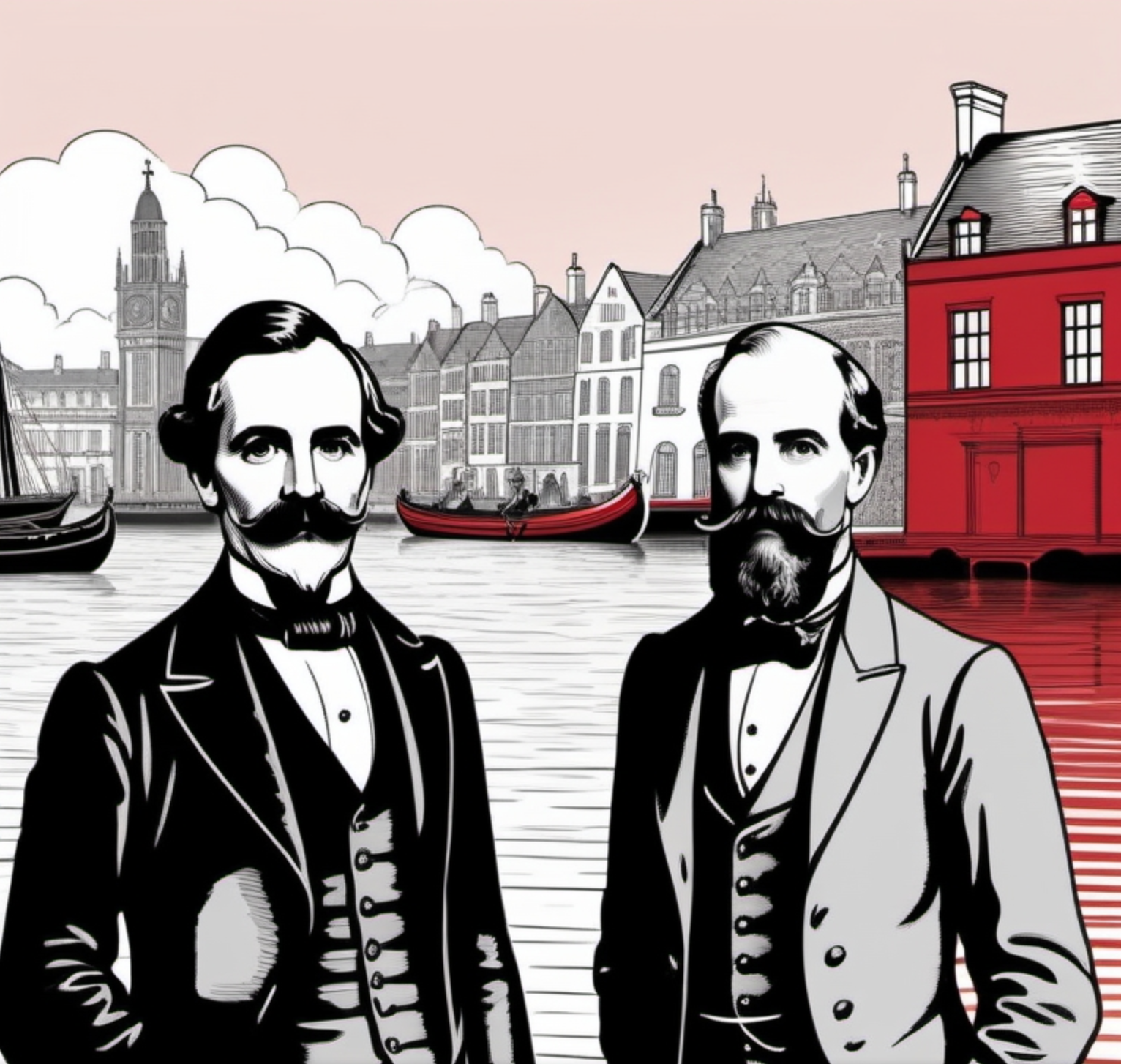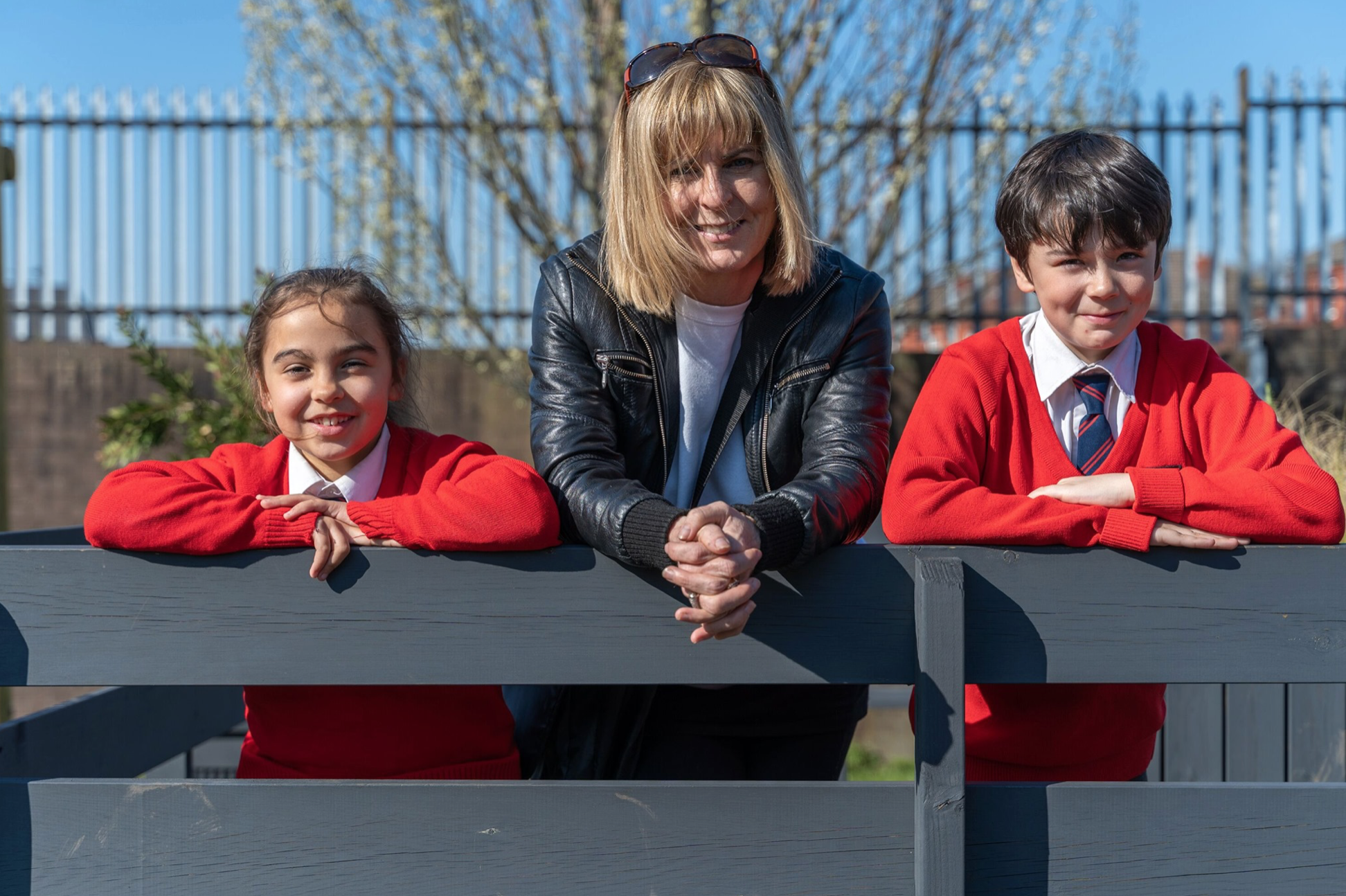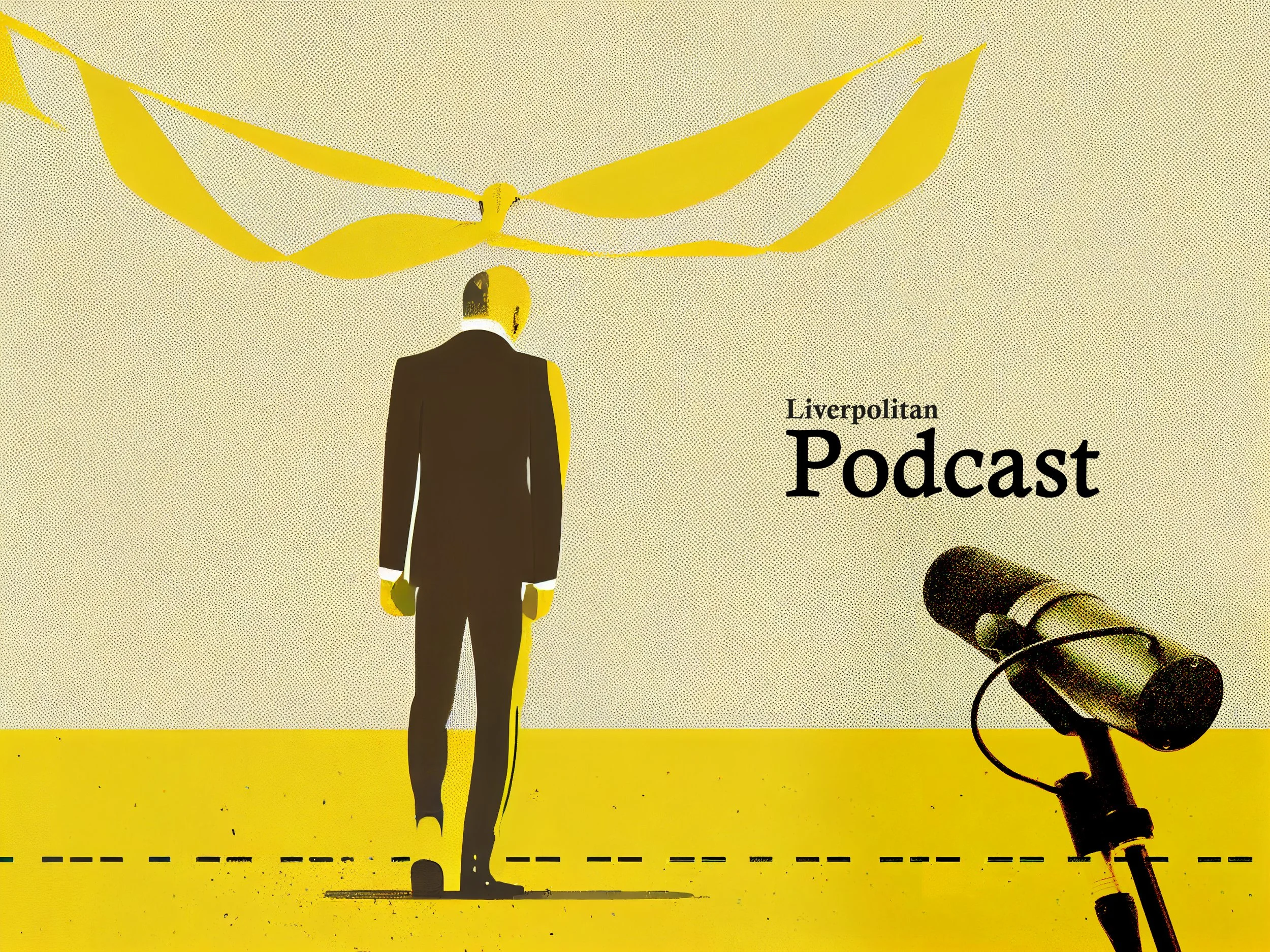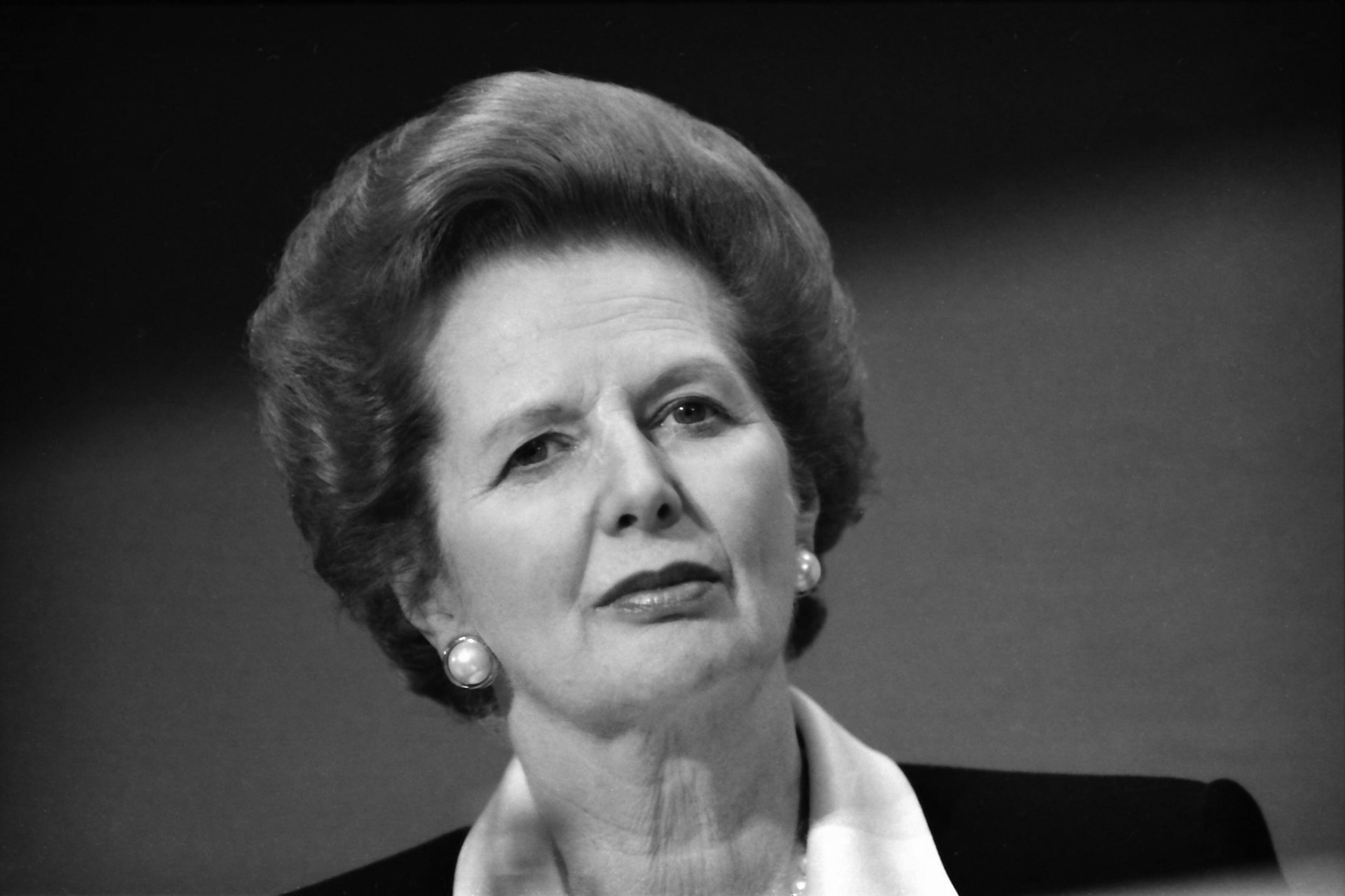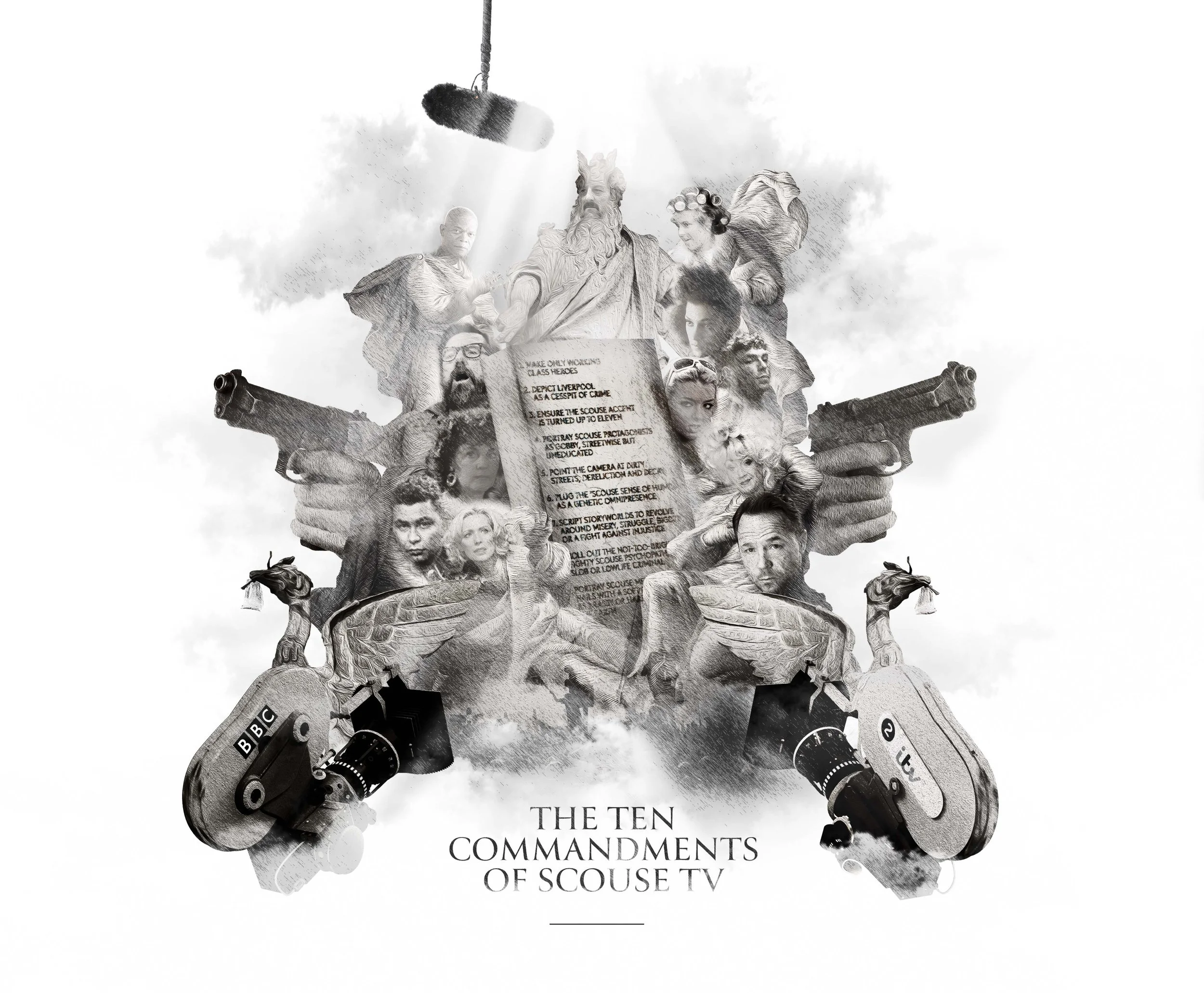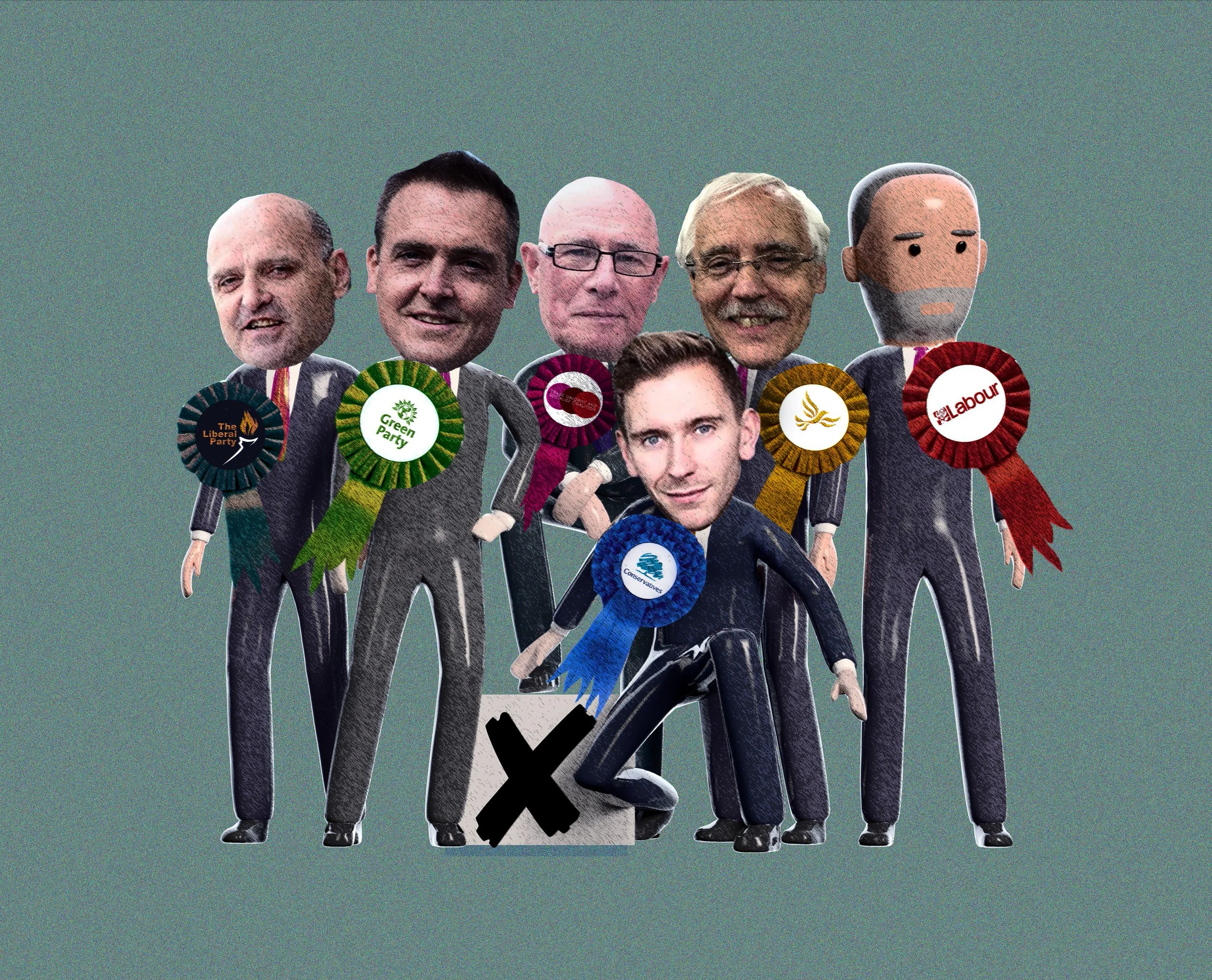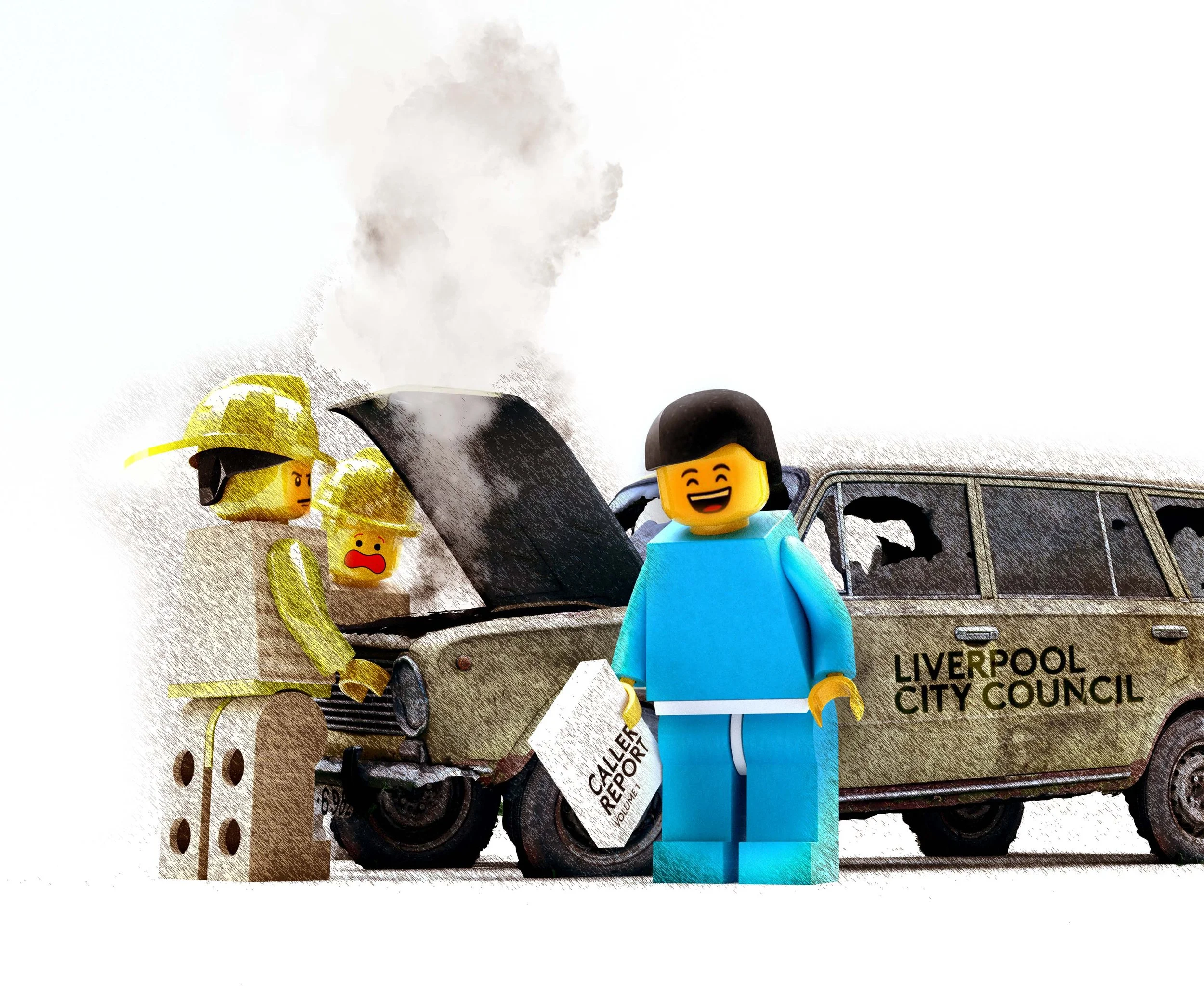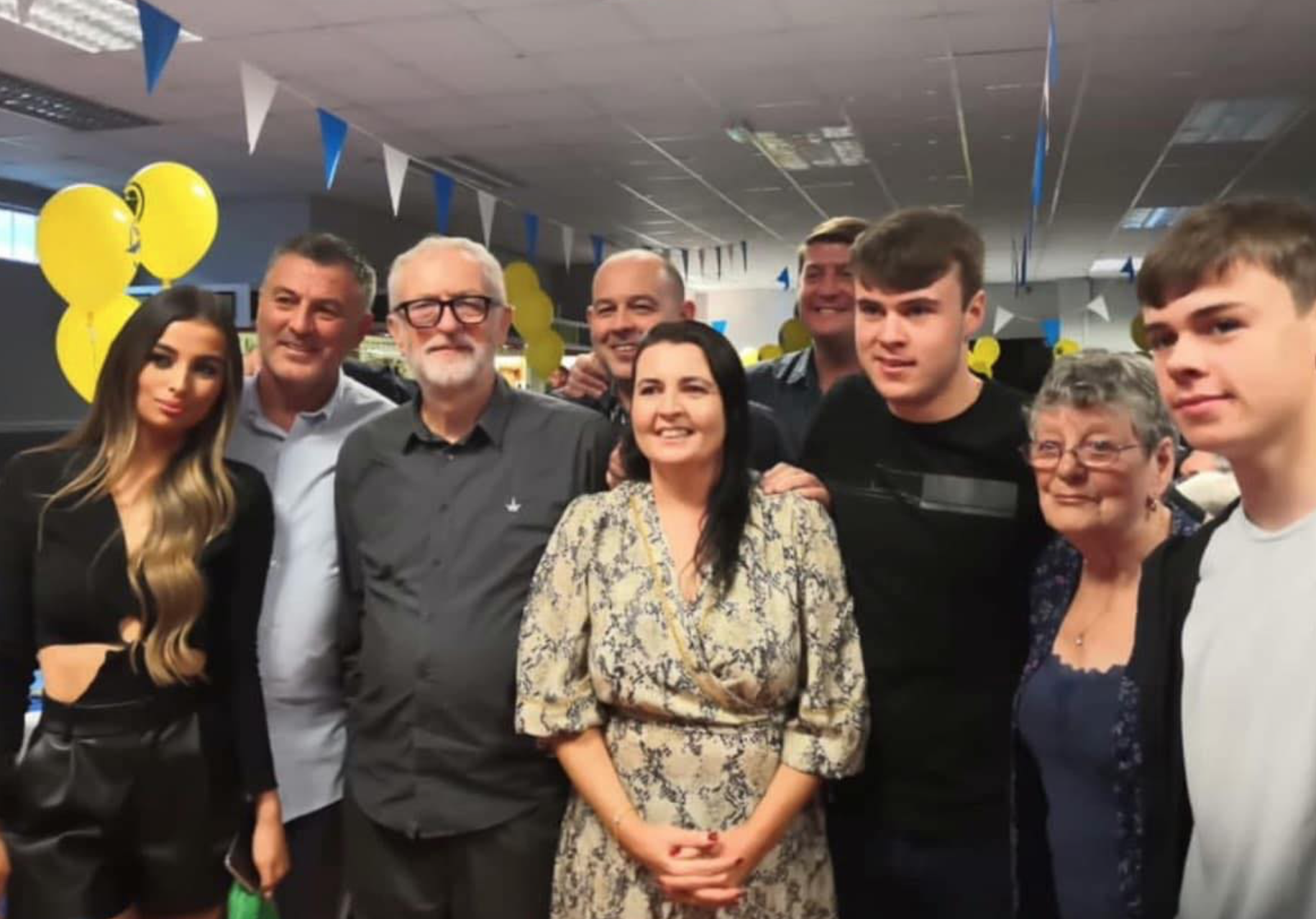Recent features
Face Value: What makes a good council?
Are diversity and representation the most important determinants of a good council? Reacting to our previous article, Child Labour, Liverpool’s Lib Dem Leader Richard Kemp, the city's longest standing councillor, leans on his years of experience to explain what he thinks makes for a successful council chamber.
Richard Kemp
There have been a lot of comments on the Liverpolitan Twitter feed recently after they published Child Labour, an article about the number of young councillors coming on to the scene in Liverpool.
I was struck by the defensive nature of some of them especially from those who had been elected as young councillors themselves. Yet no-one has suggested that young councillors are a bad thing. They can offer a viewpoint and an energy that older members of the chamber might struggle to bring. A good council will use the knowledge and energy of young people as part of a balanced team where their voices can be heard rather than dismissed as it so often is.
I thought that I might contribute to this discussion because although at 69, I’m clearly not a young councillor, I was once and my experience of moving through the ages might help the debate. I was first elected at 22, became the equivalent of a Cabinet Member at 24, and after 39 years in office, I’m now the longest serving councillor in Liverpool. In a variety of roles including as national leader of Lib Dem councillors I have supported elected members in more than 50 councils across the country so I’ve seen a lot of local government – both the good and the bad.
This experience does hopefully give me a long-term perspective from which to answer two related questions which I want to address - ’What should a good council look like?’ and ‘What does a good councillor look like?’
So to the first question. In a nutshell, a council should look as much as possible like the people of the area it represents. This applies both to the elected side of a council and also to its workforce, but in this article I’m just focusing on the elected side.
“When choosing candidates we have to be looking at factors like gender balance, ethnicity, age and class. Does what’s found in the chamber reflect what’s found out on the streets?”
Why is this important? Because having a diversity of councillors means that there is a diversity of knowledge and experiences within the council chamber. Different groups of people are impacted by decisions in different ways so having broad representation ensures that we keep our eyes open and our hearts sensitive to the different priorities of the groups that make up our population. That’s really important because even if our intentions are good as councillors we can’t presume we understand everything or even feel everything that is important to our electorate.
For example, I have never been discriminated against on the grounds of race, gender or sexuality. I can empathise with those who have and have a feeling for their challenges but I do not have that direct experience. Perhaps it’s the same with generational differences. I wasn’t born into the computer age, so I don’t have that instinctive feel that younger people do when discussing the challenges of technology, the industries of the future, the pitfalls of social media and issues around how we best communicate with each other. Ultimately, each person has their own stories to tell, and the better our representation, the more able we are to harness them to improve policies and more effectively monitor their success from different perspectives.
All of this means that when choosing candidates to stand for our parties we have to be looking at factors like gender balance, ethnicity, age and class. Does what’s found in the chamber reflect what’s found out on the streets? It’s worth looking at some of the available statistics. In Liverpool, according to the last census data 51% of our population are female and 49% male, while about 14% are from ethnic minorities including those born in other countries. A wide range of faiths are represented. Our population trends slightly younger than the national average with the under 30s clustering in the centre and average ages increasing as you move outwards especially to the north. When you start to look at profession and class, manual workers now make up a smaller proportion of our elected officials compared to when I first became a councillor, but that reflects changes in the city and society as a whole. The age of mass employment in big unionised factories like Tate & Lyle, Ogdens Tobacco, Dunlop, Courtaulds or, of course, the docks is long over, a decline which set in many years ago as computers and mechanisation took over.
Liverpool Council is currently completing a survey of councillors but the last one, conducted five years ago, showed that only 40% of elected members were female. However, the last five years has brought about a big change in that figure with Liverpool now one of the few councils in the country to achieve gender parity. We appear to have made less progress in other areas. Later this year we will have access to the first results from the 2021 National Census. This will provide us with the most up-to-date information about the make-up of the city’s population compared to that of its councillors. Those results should prove useful as we continue to try to improve representation.
Councillors from Liverpool and the Wirral had their say on our article, Child Labour
However, and this is an important point, diversity is not enough on its own. Having elected members that look like the community does not mean they’d make inherently better councillors. Being a councillor involves passion and compassion; with a strong civic desire to serve the community. It involves commitment. It involves hard work. Being who you are is only the start. It’s what you want to do and how you want to do that counts and it takes a council chamber full of people with vision and ability to make a good council that is both representative and capable.
If we turn our attention to the second question, ‘What does a good councillor looks like?’, we can see why the ideal council is difficult to create. Your average councillor has four calls upon their time. In addition to what can be the hard and demanding grind of the job of councillor, they also need to earn a living, care for their family and help run their political party which usually involves a lot of campaigning and canvassing. Juggling these different demands is a challenge and the level of difficulty lands differently on different people effected by things such as time of life, financial security, responsibilities for others and many other factors.
Being a councillor in a big city like Liverpool is a particularly arduous task if you do it properly and most councillors of most parties do. The life of a councillor involves attending council and committee meetings, keeping up-to-date with the constant stream of information and documents, coordinating with other councillors from your political group, and undergoing professional training when necessary. And all the while you are trying to weigh up matters, figuring out what decisions you have to take, and the need to make decisions is continuous. We then have to work within the communities that we represent, fact-finding and campaigning alongside the many volunteers who keep community life ticking over. For many of us council life is almost 24/7 and 365 days a year.
It’s worth noting that councillors do not receive a salary. Instead they receive a basic annual allowance which is worth £10,590 plus expenses. Those councillors who have additional responsibilities such as Cabinet members receive additional Special Responsibility Allowances (SRAs) but of course, many do not. This means, that most have no choice but to work for a living. Very few employers like the idea of a member of their staff being a councillor. The fact that we can legally demand unpaid time off to a certain level is unattractive to many which is why councillors often work for the public sector, unions or choose to be self-employed.
Outside of work, councillors have families and face the same pressures as the rest of the population. Those with added responsibilities such as caring for ageing parents or young children will inevitably have more on their plate than those who aren’t dealing with such issues. This is of course not unique to councillors but it’s worth noting because for some perfectly able individuals it can be an impediment preventing them from running for office or continuing their work once elected. In my experience, it’s easier to find the time to do things when you are a grandparent rather than when you’re weighed down with the challenges of parenthood.
Finally, all councillors except perhaps independents have to work inside their own political party undertaking political campaigning and policy development not only for local but also for national elections. What will surprise people who always think of us as politicians, is that party work often takes up a very small percentage of our time. More often than not, we tend to think of ourselves as councillors and not politicians.
All of these four factors intervene at different times to affect what we can do as councillors and even whether we can continue to do the job.
In future, if we want a more representative council we need as an organisation to understand the realities of these four competing pressures on councillors and provide support mechanisms to help people cope with them. For example, there’s a carers allowance whereby councillors with young children can get some support for childcare activities but none for those who have to care for relatives either older than themselves or those with physical or mental needs.
“The question of money gets raised from time to time. Some believe councillors should be paid more to attract better candidates. I don’t think that more money would actually change the makeup of the council, nor should it.”
I often mentor Lib Dem council groups and young people who are thinking of standing for office or even sometimes those who have been already been elected and they often ask me if I think being a councillor is a good idea. My answer is invariably, “Yes, but think through what that will mean to you and yours.”
Being an elected representative is a huge learning experience which we often fail to capture. On the job, I learned how to speak in public, how big organisations work and how to work effectively within them. I developed many skills in political and managerial leadership. I also picked up a lot of knowledge about people, communities and the way that the public sector responds to needs and problems.
I was lucky enough to find a job as a regeneration adviser which made use of those skills and knowledge sets. That was, however, by luck not judgement and no help was given to me to find work that would utilise my hard-earned experience. I think a major way forward for all councillors, except for old gimmers like me, would be to find a way of accrediting the learning experiences and training that we have acquired. Having people who know how the public sector works, can chair meetings, can speak in public, and understand how to interpret balance sheets and trading accounts should be a very attractive proposition for both public and private sectors if we could capture that and enable us to put it on our CVs.
For very practical reasons there are life factors which will inhibit the very young and very old from being councillors. Most young people want to experience life in a range of educational, work and leisure activities before settling down. At the other end of the timeline, I am finding it increasingly difficult to cope with some of the grind of council work. I can now only deliver leaflets for 2.5 hours before the knees go!
But saying that, there is an advantage to being an ‘old hand’. I have developed a deep well of ‘life experience’, some of it gained though my time at the council, but much of it elsewhere. I’ve learned how to listen, how and when to intervene, how to make a point and when it’s better to keep my mouth shut. I now have the confidence to know that I know a lot, but also that it’s OK to admit that there are areas where I know little or do not have the skills required. Always strive to surround yourself with great people – you don’t have to be an expert in everything.
The question of money gets raised from time to time. Some believe that councillors should be paid more to attract better candidates. I don’t think that more money would actually change the makeup of the council, nor should it. When I was first a councillor, we only received an allowance of £10 a day which wasn’t a lot of money even in 1975! But it didn’t affect my desire to do the job. You have to do it because you care and because you feel that being a councillor is your way of giving back to the community that you live in.
I’ve had a great deal of pleasure and satisfaction from my years as a councillor, but it has never been an easy job. When people tell me I am not doing enough of this or that or spending my time wrongly, I always challenge them to stand for the council themselves. Being an angry couch potato or keyboard warrior is much easier and few take up the challenge.
Most councillors of all parties do their best. Everyone can help us to do our job better by supporting us with their time and knowledge in a positive way. If you want more good councillors think of ways in which you could help the ones you’ve got now – that is if you are not prepared to put yourself to the electoral test!
Richard Kemp is the longest standing councillor in Liverpool. He is also the Leader of the Liverpool Liberal Democrat Group.
Share this article
What do you think? Let us know.
Write a letter for our Short Reads section, join the debate via Twitter or Facebook or just drop us a line at team@liverpolitan.co.uk
Once Byrned, twice shy?
Ellie Byrne is Labour’s candidate for the upcoming council by-election in Everton Ward. Until recently, we’d never heard of her. But that surname sounded oh so familiar. And then it clicked. She’s the daughter of Ian Byrne, the previous incumbent turned MP and for some reason, Labour is avoiding making that connection clear. So who is she, what are her credentials and how, in a city that needs to play it straight more than ever before, did she win the nomination to represent Labour?
Paul Bryan
The upcoming council by-election in Everton Ward (April 7th) has thrown up an interesting wrinkle. Labour’s candidate is a certain Ellie Byrne – a young woman in her early twenties who until recently we’d never heard of.
She keeps a fairly low profile on social media and there’s not much online to suggest she’s previously made a mark as an activist. Yet here she is standing for political office in one of the poorest wards in the country. And being Labour’s candidate in a one-horse, red-rose town, she’s almost certain to win. Which begs the question, who is she? And how did she win the nomination to represent Labour?
Let’s be honest about what caught our attention here. It’s that surname – Byrne. Sounds familiar. And it should because it’s also name of the previous incumbent, Ian Byrne, who announced his resignation at a feisty town hall meeting in January, which triggered this by-election. Ian Byrne is of note for two reasons. Firstly, because he is Ian ‘Two Jobs’ Byrne - the Everton councillor who also became the MP for Liverpool West Derby at the 2019 general election and who broke electoral convention and the rules of good sense by refusing to step down for over two years from his council position. He obviously felt the citizens of Everton and the citizens of West Derby needed him that badly that he had to represent them both. Lucky them.
The other reason why Ian Byrne is of note is because he is Ellie Byrne’s dad, although you wouldn’t know it by looking at any of Labour’s campaign materials. They and the Liverpool Echo which reported her selection are steering well clear of revealing the truth of their relationship as confirmed by residents who have been paid a visit by the Labour team. So what we have here, for clarity is the prospect of a father handing over the baton of office in his electoral ward to his young daughter, as if it was some kind of private enterprise. Now to be fair, there is going to be an election which has to be won, and Liverpool, it must be said, has a long history of keeping it in the family and I’m not talking about the propensity of Andersons (not related). A quick flick through the history books reveals a host of siblings, fathers, husbands, wives, sons and daughters, cousins and aunts who have been regular suckers of the proverbial town hall teat. Peter Kilfoyle’s book, ‘Left Behind’ is very good on this topic.
What do we know about her? From her Facebook profile we know she’s partial to Cadbury’s Cream Eggs, Hannah Montana, and Keeping Up with the Kardashians and for some reason likes Justin Bieber High School.
But still, does it pass the smell test? Given everything that we’ve recently learned about mismanagement and suspected corruption, after the police investigations and arrests, and Labour’s own Hanson Report into what it found to be a ‘toxic culture’ within the Liverpool Labour Group, wouldn’t you bend over backwards to avoid even giving the slightest impression of impropriety or self-serving? Wouldn’t a genuine sense of civic duty demand it?
Still, this could all be cleared up really easily. An interview with the candidate herself would be the chance for her to make her case and show what she’s made of. To show that she’s got here under her own steam. Because maybe she has. But sadly, the Labour Party are not letting her off the leash. No interviews allowed. Such a stance doesn’t breed confidence.
Liverpolitan spoke to Sheila Murphy, who was appointed by Labour’s National Executive Committee (NEC) to oversee the clean-up of the Liverpool Labour group. She was not having it.
“You’re not the only person wanting to speak to Ellie and there’s a bit of a story developing which I think is unfair. Ellie has been a member of the Labour Party for some time and is active in her community. She was selected by Everton members as part of a rigorous process based on her own ability but there won’t be any interviews.”
Sheila was keen to get across the message that Ellie was one of two young candidates (the other standing in Warbreck) and that if the Labour Party was to reinvigorate itself “these are just the kind of people we need to represent us.”
It’s certainly true that Ellie’s candidacy was supported by the official Labour Party apparatus. Following the Caller report, it was announced that candidate lists would be approved by the NEC at least until 2026. Everton ward members made their selection from a short-list that included Brian Dowling and Jean Barrett, both long-time party activists. Speaking to The Post, neither losing candidate had any complaints and positively glowed in their assessments of Ellie.
But doubts still remain. What do we really know about her? She grew up locally, attending Our Lady Immaculate and Notre Dame schools. She claims to have worked in the L6 Community Centre at some point possibly assisting with her father’s foodbank campaigns such as Right to Food. Her spartan Linkedin profile says she graduated from Liverpool University in 2021 with a degree in Law and History. From her social media profile on Facebook we know she’s partial to Cadbury’s Cream Eggs, Hannah Montana, and Keeping Up with the Kardashians and for some reason likes Justin Bieber High School. We also know that she was once pictured standing next to her ever-present dad and Jeremy Corbyn and that she seems to like posting shots of her pouting to the camera although she doesn’t post much at all and she’s hard to find on Twitter, Instagram and Tik Tok. What doesn’t shine out in any of the publicly available information is any kind of political heritage at all. Unless you include liking the Happy Pets app.
None of which is definitely a deal-breaker. Social media is an unreliable tool at the best of times although it’s all we’ve got if she won’t talk to us. But if there’s more to her and she wants your vote, I think she owes it to the electorate to come into the sunlight and tell us what she really thinks in her own words. What she stands for, and what she believes. A campaign leaflet produced by the party machine won’t cut it. If nothing else she should do it to prove that she isn’t just her father’s mouthpiece. That she’s got a mind of her own and the ability to make a difference. Otherwise, the faithful are just being taken for a ride. Again.
Liverpolitan spoke to some of the other parties and candidates contesting the seat. Kevin Robinson-Hale of the Green Party was previously a Chair of Labour’s Everton branch before quitting in 2019, a man well-versed in the ways of the dominant party around here. Yet he seemed a bit reticent to open up, “I haven’t got an opinion on Ian and I don’t know Ellie”, he said. He just felt that Everton voters “shouldn’t get a candidate they’ve never heard of” and residents shouldn’t be forced to “go out of their way to try and get things done.” He was at pains to say that unlike others he wouldn’t be looking to use the council seat as a stepping stone to parliament.
We also heard from Local Lib Dem Leader, Richard Kemp, who was quick to shoot down any suggestions of nepotism. “Having relatives as a fellow councillor is not unusual,” he told us. “My wife served alongside me for 23 years.” Indeed. But then he performed an about-face, thundering into his keyboard “Labour now seems to favour the inherited system of power and patronage in Liverpool! What next? Baron Byrne of West Derby!?” Richard seemed particularly exercised that Ian Byrne had timed his resignation “to allow his daughter to reach 18”, a curious piece of factual inaccuracy given that as we pointed out earlier, Ellie is actually a university graduate going on 23 years old. That snippet I suspect was picked up from a recent email to Liverpool Council and the Government Commissioners into which he was cc’d from a ‘Ms Bett and Residents’ who are extremely exercised by the selection of Ellie as Labour’s candidate. Although, he may have picked it up from a separate anonymous email from ‘Labour Activists in Everton Ward’ who are equally infuriated.
“Does Labour condone nepotism as a way to recruit councillor candidates?” they wrote. “To say we are startled by this information that the Candidate for this by-election is actually the daughter of the outgoing councillor is an understatement and we hope the National Labour Party if not the local Everton CLP rectify this situation before the election date to avoid a national scandal.”
Clearly, beneath the surface all is not calm in Everton ward and despite the efforts of Labour Party fixers, there appears to be considerable disquiet at Ellie’s selection at least amongst some of the group’s natural supporters. Right now, we’re left to wonder, what is it that makes Miss Byrne the perfect candidate to represent the interests of a ward which struggles with the basics of food and employment? Until, she speaks up we’ll never know. I guess the voters of Everton will just have to make up their own minds. But if the continual re-election of Malcolm ‘Milk'em’ Kennedy by neighbouring Kirkdale - who chose to live in Spain rather than in Liverpool - is anything to go by ... it looks like there will be few obstacles to Ellie Byrne enjoying a glittering political career, whether she’s up to the job or not. He may well have reluctantly stepped aside (three years after he perhaps should have done) but you can bet Ellie will be doing her best to keep the red flag flying, under the watchful guidance of Dad, Ian.
Paul Bryan is the Editor and Co-Founder of Liverpolitan. He is also a freelance content writer, script editor, communications strategist and creative coach.



